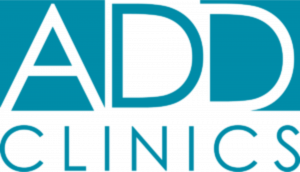
Exploring the Connection Between ADD and Physical Health
Dr. Stanford Owen, owner of ADD Clinics in Gulfport, Mississippi, explains, “The relationship between ADD and physical health is multifaceted, involving behavioral patterns, lifestyle choices, and physiological factors. Understanding these connections is critical for developing comprehensive treatment strategies.”
The Connection Between ADD and Obesity
One of the most documented links between ADD and physical health involves obesity. Studies have shown that individuals with ADD are more likely to struggle with weight management due to several factors:
Impulsive Eating Behaviors
Impulsivity, a hallmark of ADD, often extends to eating habits. This can lead to overeating, choosing high-calorie foods, or eating at irregular times. These behaviors can disrupt metabolic balance and contribute to weight gain.
Lack of Structured Routines
Maintaining consistent meal times and a regular exercise schedule can be challenging for individuals with ADD, which may result in poor dietary habits and sedentary behavior.
Emotional Eating
ADD is often associated with difficulties in emotional regulation. This can lead to emotional eating as a coping mechanism, further contributing to weight gain.
The relationship between ADD and obesity is bidirectional. Obesity can exacerbate ADD symptoms by reducing energy levels, impairing sleep quality, and increasing the risk of mood disorders. Addressing weight management as part of an ADD treatment plan can significantly improve overall health outcomes.
Cardiovascular Risks Associated with ADD
In addition to obesity, individuals with ADD may face an elevated risk of cardiovascular issues. Factors contributing to this risk include:
Chronic Stress
The heightened stress levels often experienced by individuals with ADD can have a direct impact on heart health. Chronic stress triggers the release of stress hormones such as cortisol, which can contribute to hypertension and other cardiovascular conditions.
Sleep Disturbances
Sleep problems, including insomnia and poor sleep quality, are common among individuals with ADD. Sleep deprivation can lead to elevated blood pressure, increased heart rate, and other cardiovascular risks.
Lifestyle Choices
The impulsivity and inattention associated with ADD may lead to behaviors such as smoking, excessive alcohol consumption, or neglecting regular health check-ups, all of which can negatively impact cardiovascular health.
It is important to note that some stimulant medications commonly used to manage ADD symptoms can have cardiovascular side effects, such as increased heart rate or blood pressure. Regular monitoring by healthcare professionals is essential for individuals using these medications.
Addressing Physical Health in ADD Treatment Plans
A comprehensive approach to managing ADD should include strategies for promoting physical health. Key components include:
Structured Routines
Encouraging consistent routines for eating, exercising, and sleeping can help mitigate the impulsivity and disorganization associated with ADD. Establishing a regular schedule provides structure and reduces the likelihood of unhealthy habits.
Nutritional Guidance
A balanced diet plays a critical role in managing both ADD symptoms and physical health. Emphasizing whole foods, lean proteins, and complex carbohydrates can improve focus, energy levels, and overall well-being. Limiting sugar and processed foods is also important, as these can exacerbate ADD symptoms and contribute to weight gain.
Physical Activity
Regular exercise has been shown to benefit individuals with ADD by improving focus, reducing hyperactivity, and enhancing mood. Exercise also supports cardiovascular health and aids in weight management. Activities such as yoga, swimming, or team sports can provide both physical and mental benefits.
Stress Management
Incorporating stress-reducing practices such as mindfulness, meditation, or relaxation exercises can lower cortisol levels and reduce the risk of cardiovascular issues. These practices can also help with emotional regulation, a common challenge for individuals with ADD.
Regular Health Monitoring
Routine medical check-ups are essential for identifying and addressing physical health concerns early. Healthcare providers can monitor weight, blood pressure, and other indicators of physical health, ensuring that any emerging issues are promptly addressed.
Importance of Collaborative Care
The interplay between ADD and physical health highlights the need for a multidisciplinary approach to treatment. Collaboration among psychiatrists, primary care physicians, dietitians, and fitness professionals can create a holistic care plan tailored to the individual’s needs. This approach ensures that both mental and physical health are prioritized, leading to better long-term outcomes.
Moving Forward with Research and Awareness
The connection between ADD and physical health is an area of growing interest within the medical community. Ongoing research aims to further understand the mechanisms linking ADD to conditions such as obesity and cardiovascular disease. Increased awareness among healthcare providers and the public is also critical for encouraging early intervention and comprehensive care.
Addressing physical health concerns in individuals with ADD not only improves quality of life but also reduces the risk of long-term complications. By recognizing and addressing these connections, healthcare providers can offer more effective support to individuals managing ADD.
Conclusion
ADD is a complex condition that extends beyond its cognitive and behavioral symptoms to include significant implications for physical health. Obesity and cardiovascular issues are among the most common concerns, often stemming from the interplay of lifestyle factors, impulsivity, and chronic stress. A comprehensive treatment plan that incorporates physical health strategies can lead to better outcomes for individuals with ADD. Understanding and addressing these risks is a critical step in promoting the overall well-being of those affected.
Morgan Thomas
Rhino Digital, LLC
+1 504-875-5036
email us here
Visit us on social media:
Facebook
Distribution channels: Culture, Society & Lifestyle, Healthcare & Pharmaceuticals Industry
Legal Disclaimer:
EIN Presswire provides this news content "as is" without warranty of any kind. We do not accept any responsibility or liability for the accuracy, content, images, videos, licenses, completeness, legality, or reliability of the information contained in this article. If you have any complaints or copyright issues related to this article, kindly contact the author above.
Submit your press release

